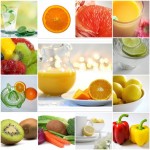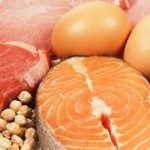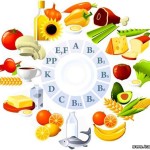Nutrition for the skin.
Nutrition for the skin.
Nutrition needs depend on various factors such as age,sex,weight,physical activity ,and body type. Healthy skin begins with diet and water intake.The adage” You are what you eat” still holds true. Proper dietary choices helps to regulate hydration (maintaining a healthy level of water in the body),oil production,and overall cell function. Skin disorders, fatigue, stress, depression, and some diseases are often the result of a poorly balanced diet. Vitamins and minerals are a necessary part of a balanced diet. The benefits and effects of nutriens and their food sources are discussed in this article.
Macronutrients.
Macronutrients are the basic building blocks necessary for bodily functions, including the functioning of the skin. The macronutrients are the three basic food groups: proteins, carbohydrates, and fats. They make up the largest part of the nutrition we take in. Eating foods found in all three of these basic food groups is necessary to support the health of the body.The recommended intake is protein, 20 percent(105 grams); carbohydrates, 54 percent(281 grams); and fat,26 percent(60 grams0.This is based on an intake of 2,000 calories per day.
Proteins.
Proteins are chains of amino acid molecules that are used by every cell of the body to make other usable proteins.These building blocks carry out various functions required by the cells and the body.Protein are neededto make muscle tissue, blood, and enzymes as well as the keratin system in makong antibodies. Collagen is also made from protein.Protein contain all essential amino acids. Dietary Sources of Proteins. Although meat,fish, poultry, eggs, and dairy products are complete proteins that provide all of the essential amino acids, they should be limited in the diet because they are also high in fat. Complementary foods are combinations of two incomplete proteins that provide all the essential amino acods and make a complete protein. Some complementary proteins are peanut butter and bread, rice and beans, bean and corn, and black-eyed peas and cornbread.Dietary sources of protein come from animal meat as well as fish, eggs, dairy products, nuts, grains, and beans.
Micronutrients: Vitamins.
Vitamins, or micronutrients, are substances that have no calories and no real nutritional value, yet they are necessary for many nutrients to be properly processed by the body. Without vitamons, the body cannot operate and will eventually die. Vitamins play an important role in the skin’s health by aiding in healing, softening, and fighting diseases of the skin.
Antioxidant vitamins such as A,C,and E have all been shown to have positive effects on skin health. Vitamins fall into two categories: fat- soluble( vitamins A,D,E,and K), and water- soluble(vitamins B and C).
Vitamine A is formally known as retinol, which is an ingredient used in skin care products designed for aging skin.
Vitamin D is sometimes called the” sunshine vitamin” because the skin synthesizes vitamin D from cholesterol when exposed to sunlight. The main function of vitamin D is to enable the body to properly absorb and use calcium, the element neededfor proper bone development and maintenance.
Vitamin E, is primarily an antioxidant. Used in conjunction with vitamin A, vitamin E helps protect the skin from the harmful effects of the sun’s rays.
Vitamin K is essential for the synthesis of proteins necessary for blood coagulation.
Vitamin B. There are eight B vitamins:B complex(niacin),B1(thiamine),B2(riboflavin), B6 (pyridoxine), B7 (biotin),B12 (cobalamine), folic acis(folacin0, and B15 (pantothenic acid).
Vitamin C, also known as ascorbic acid, is an antioxidant that helps protect the body from many forms of oxidation and from problems involving free radicals.
Minerals.
Some of the important Essential minerals; Calcium,Magnesium,Phosphorus,Potassium, Sodium.
Trace Minerals: Iron,Iodine,Zinc,Copper, Chromium,Selenium,Manganese.




